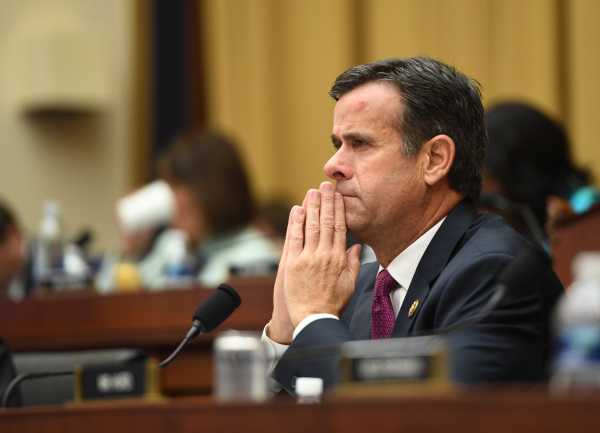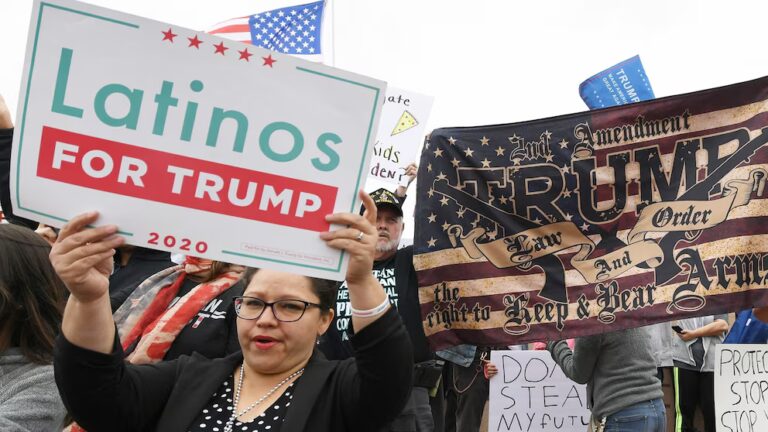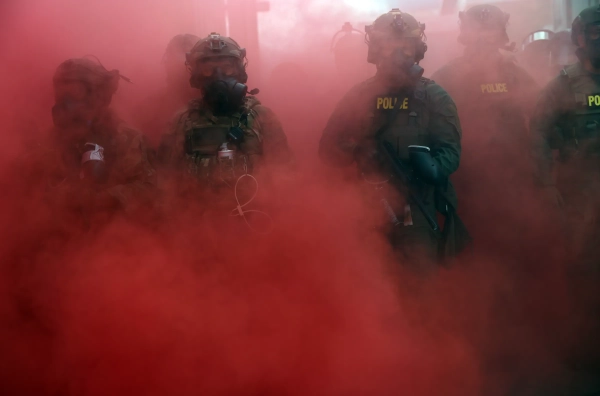
The director of national intelligence is supposed to tell the president the truth, even if it’s something he doesn’t want to hear. President Donald Trump selected Rep. John Ratcliffe (R-TX) as the next top American spy on Sunday, soon after Daniel Coats resigned his post; it seems the president hopes Ratcliffe won’t speak truth to power, but will just say whatever power wants.
Ratcliffe is a former federal prosecutor, mayor of an 8,000-strong Texas town, and since 2014 a member of Congress. That’s not too shabby as a résumé for an American politician, but it offers razor-thin credentials to oversee the country’s federal intelligence agencies.
Most who have served in the top intelligence post were former ambassadors, four-star military officers, or people with decades of intelligence experience. The Congress member’s best claim for the job, by contrast, is that he served just seven months on the House Intelligence Committee. While Ratcliffe certainly will have engaged with vital intelligence matters serving on the panel, that doesn’t necessarily translate to being a successful manager of 16 agencies, hundreds of thousands of government staff and contractors, and an over $53 billion budget.
If confirmed, his most important role will be briefing the president on threats facing the US. Ratcliffe, in theory, will have to stare straight at Trump when discussing how Russia is trying to influence America’s elections, how North Korea is unlikely to give up its nuclear weapons despite the president’s lovefest with Kim Jong Un, and how climate change is only getting worse and creating more security problems around the world.
The problem is Trump likely chose Ratcliffe because he hopes the Texas congressman won’t do those things in practice. Many fear he’ll serve solely as a “Trump poodle,” as former CIA spokesperson George Little tweeted on Monday morning. There’s good reason for that: Ratcliffe has proven a staunch Trump loyalist who was greatly involved in the House Republican effort to investigate the Justice Department and FBI over its handling of the Russia probe.
He also spent much of former special counsel Robert Mueller’s hearing last week questioning the investigation’s integrity and conclusions, which showed the Trump campaign welcomed Russian interference and lied to cover it up.
“Nowhere does it say that you were to conclusively determine Donald Trump’s innocence or that the special counsel report should determine whether or not to exonerate him,” Ratcliffe said, citing Mueller’s decision not to exonerate or charge Trump with obstruction of justice. “The bedrock principle of our justice system is a presumption of innocence. It exists for everyone — everyone is entitled to it, including sitting presidents.”
All of this means that Ratcliffe’s Senate confirmation hearing will be more important than usual. Nothing less than the impartiality of the US intelligence community is at stake. Luckily, senators can find out how dedicated Ratcliffe would be in the job by asking him just two questions.
The two questions Senate Intelligence Committee lawmakers must ask Ratcliffe
Within the first few minutes of Ratcliffe’s confirmation hearing, Sens. Richard Burr (R-NC) or Mark Warner (D-VA), the Senate Intelligence Committee’s top two members, should ask “Did Russia interfere in the 2016 presidential election?”
Ratcliffe will likely say “yes” to this. After all, he noted during Mueller’s hearing last week that Russia meddled in “sweeping and systematic” fashion, echoing the special counsel’s own words. But the Congress member then turned to saying it’s possible Russia’s interference involved spreading a conspiracy that didn’t exist — that is, that the Trump campaign accepted Moscow’s assistance.
The senators must then ask a crucial follow-up question: “Did Russia interfere in the 2016 election to help elect Donald Trump?”
The correct answer to this is “yes,” as the intelligence community already reached this conclusion back in January 2017. Mueller also reaffirmed this assessment last week.
How Ratcliffe responds is key. If he says “yes,” he’ll be siding with the professionals he intends to lead — but potentially running afoul of Trump. The president insists that he won the election all on his own, that Russia didn’t help him, and that it was the Democrats who colluded with Moscow.
If Ratcliffe answers “no,” though, it will show that he doesn’t accept settled intelligence, likely because he wants to look good in front of Trump. That would bode poorly for how he might act as the intelligence chief.
Of course he should face other questions about climate change, North Korea, Iran, China, and more — but the Russia issue is the heart of Trump’s years-long feud with America’s intelligence community. Ratcliffe will have to make a choice to get the job he wants: side with Trump or with America’s spies. At this point, it’s an either/or matter.
Sourse: vox.com






